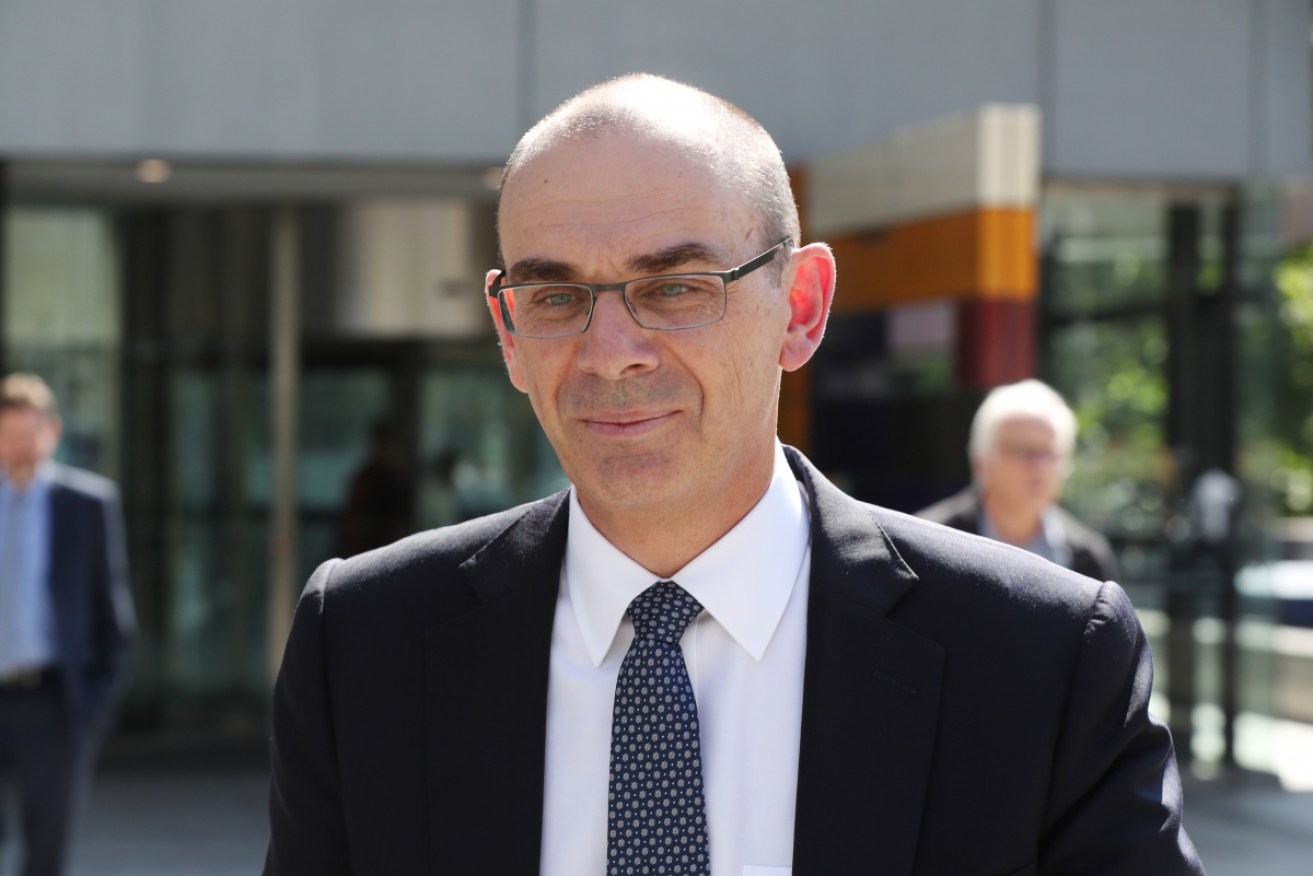APRA chief vows to get tough and ‘ratchet up the mongrel’ after CBA copout


APRA chair Wayne Byres appears at the royal commission on Thursday. Photo: AAP
Australian Prudential Regulation Authority chair Wayne Byres vowed to “ratchet up the mongrel” at the regulator after admitting it had been something of a lap dog in dealing with the Commonwealth Bank’s financial scandals back in 2016.
APRA had not acted against CBA’s executive remuneration plan and its decision to grant then CEO Ian Narev $12.3 million in pay despite the tsunami of scandals that broke over the bank, the financial services royal commission heard on Thursday.
The scandals included CommInsure’s rejection of legitimate invalid claims, credit card insurance and fee scams.
The big executive pay deal went through despite CBA shareholders voting down the remuneration report at the annual general meeting, creating a so-called “first strike” which would result in a board spill if it had been repeated the following year.
After the scandals broke APRA conducted an inquiry into CBA, then later reviewed its own actions in an internal document tabled at the commission.
“APRA’s supervision practices did not translate into identification and remediation of [board and executive] weaknesses” despite this being “APRA’s core business”, the report found.
“APRA could and should have called out remuneration practices earlier (by late 2016).”
The regulator “ultimately did this on an industry-wide basis” but not till early 2018, the report said. It also said “APRA could and should have identified severe weakness in CBA’s compliance function earlier”.
While Mr Byres agreed that APRA’s response had been inadequate, he said that was partly due to a lack of experience and confidence.
“I think this brought home the fact that we didn’t have …sufficient expertise to really be confident and, therefore… push as hard as we would for what I would call a traditional prudential issue [like mortgage lending],” he said.
“It was an area that is not the natural forte of a prudential supervisor.”
While saying that APRA had increased its vigilance and adopted a more “mongrel” attitude, Mr Byres said its powers in dealing with company remuneration were still limited.
“It’s all very well to put out the framework, but how you make sure it’s policed and adhered to, that’s a resourcing question that we are going to have to grapple with going forward,” he said.
“If we want to be able to systematically analyse this sort of stuff for every institution every year, we would have to collect a lot more information and devote a lot more resources to it.”
The commission heard that when Mr Byres met with the CBA board following the “first strike” vote he did not push hard on remuneration because he didn’t think it necessary and events had passed the issue by.
“They were pretty despondent about what had happened and quite reflective about what they were going to need to do differently in the future,” Mr Byres said.
Mr Byres said he thought Australian companies were still too focused on total shareholder return in both executive remuneration and performance hurdles.
Counsel assisting Michael Hodge QC asked whether there needed to be a rewriting of prudential standards.
“I think the current frameworks are still too focused on performance equals profit and share price moves. And performance of an executive or executive team is clearly more than those two things,” Mr Byres said.
Rules could be changed by the government in legislation or by the regulator. However the first option risked being too prescriptive.
“What I am saying is, to get change APRA will have to do it,” he said.








